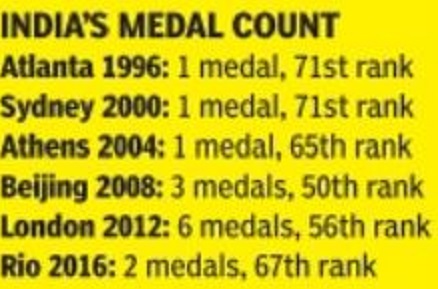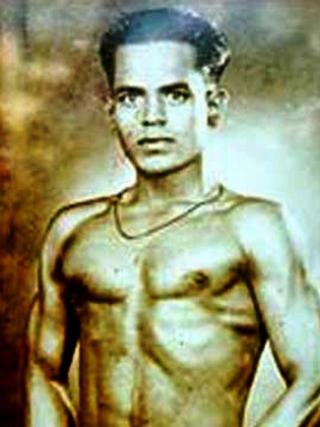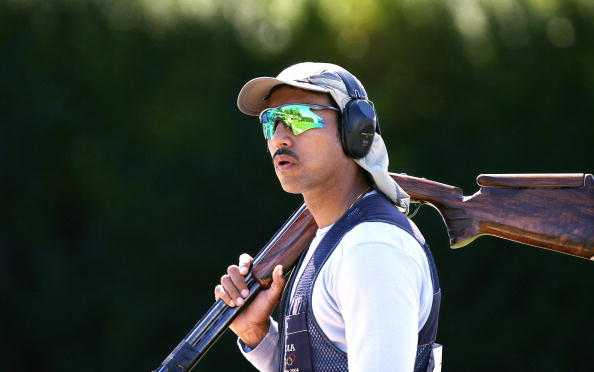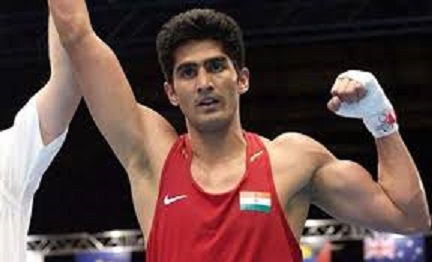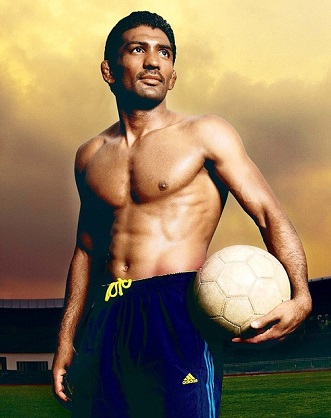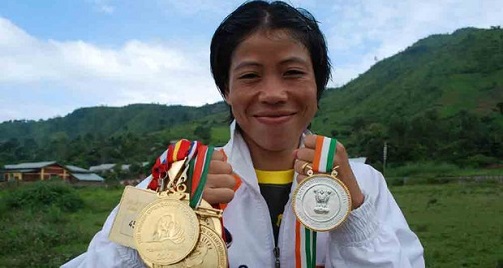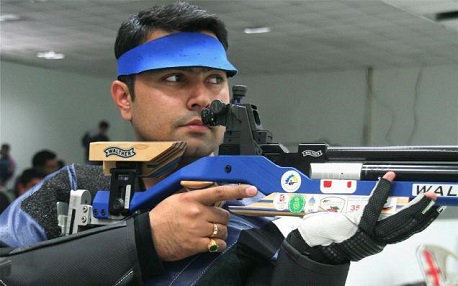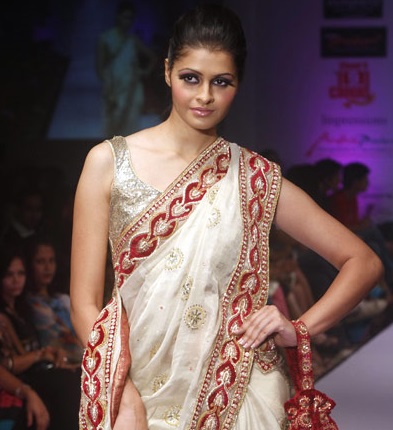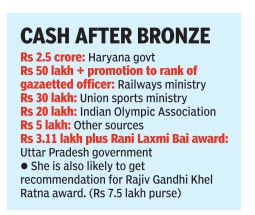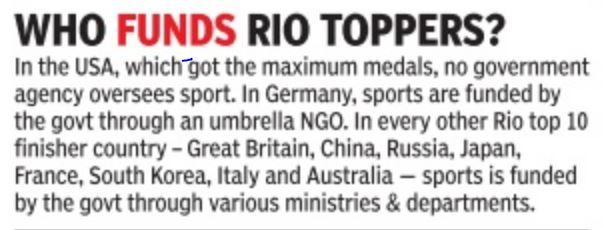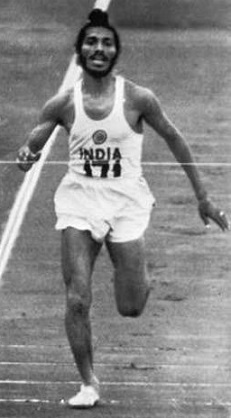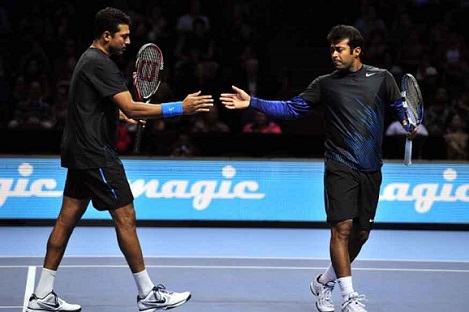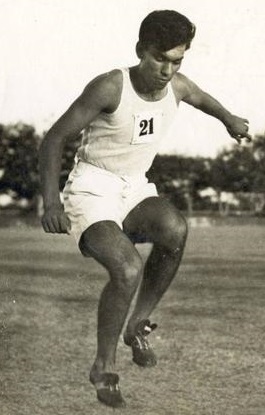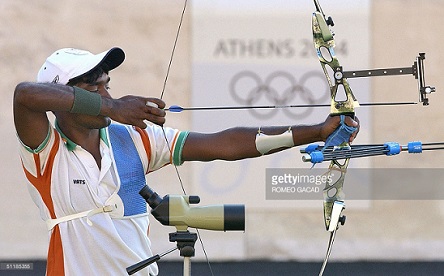The Olympics: India (1900-2016)+Home page
(→Medals won: By population and GDP) |
(→Yogeshwar Dutt) |
||
| Line 123: | Line 123: | ||
== [[Yogeshwar Dutt]] == | == [[Yogeshwar Dutt]] == | ||
| − | SILVER—WRESTLING | + | ''' SILVER—WRESTLING |
| − | MEN'S 60 KG FREESTYLE (2012 LONDON) | + | MEN'S 60 KG FREESTYLE (2012 LONDON) ''' |
The wrestler from Sonepat, Haryana made amends for his quarterfinal loss in Beijing by grabbing a bronze in the men's 60 kg freestyle competition in the English capital. However, he didn't start well in London as he lost the pre-quarterfinal bout to B Kudukhov. But like Sushil in Beijing, Yogeshwar pounced on the chance of contesting in the repechage rounds. He beat Franklin Gomez in the first repechage round followed by victory over Masoud Esmaeilpour in the next encounter which set up a bronze medal bout against North Korean Jong Myong Ri.Though the fancied North Korean won the first round 1-0, Yogeshwar came back strongly in the next to take the bout to a third and final round. With a pinpoint head and roll, he floored his opponent in 1.2 seconds to clinch the bronze medal. Rio now offers Yogeshwar a chance to join Sushil in becoming the second Indian wrestler to grab two Olympic medals. | The wrestler from Sonepat, Haryana made amends for his quarterfinal loss in Beijing by grabbing a bronze in the men's 60 kg freestyle competition in the English capital. However, he didn't start well in London as he lost the pre-quarterfinal bout to B Kudukhov. But like Sushil in Beijing, Yogeshwar pounced on the chance of contesting in the repechage rounds. He beat Franklin Gomez in the first repechage round followed by victory over Masoud Esmaeilpour in the next encounter which set up a bronze medal bout against North Korean Jong Myong Ri.Though the fancied North Korean won the first round 1-0, Yogeshwar came back strongly in the next to take the bout to a third and final round. With a pinpoint head and roll, he floored his opponent in 1.2 seconds to clinch the bronze medal. Rio now offers Yogeshwar a chance to join Sushil in becoming the second Indian wrestler to grab two Olympic medals. | ||
Revision as of 02:20, 28 October 2017
Note: Red links indicate that the page/ graphic is still under construction. Please click only blue hyperlinks.
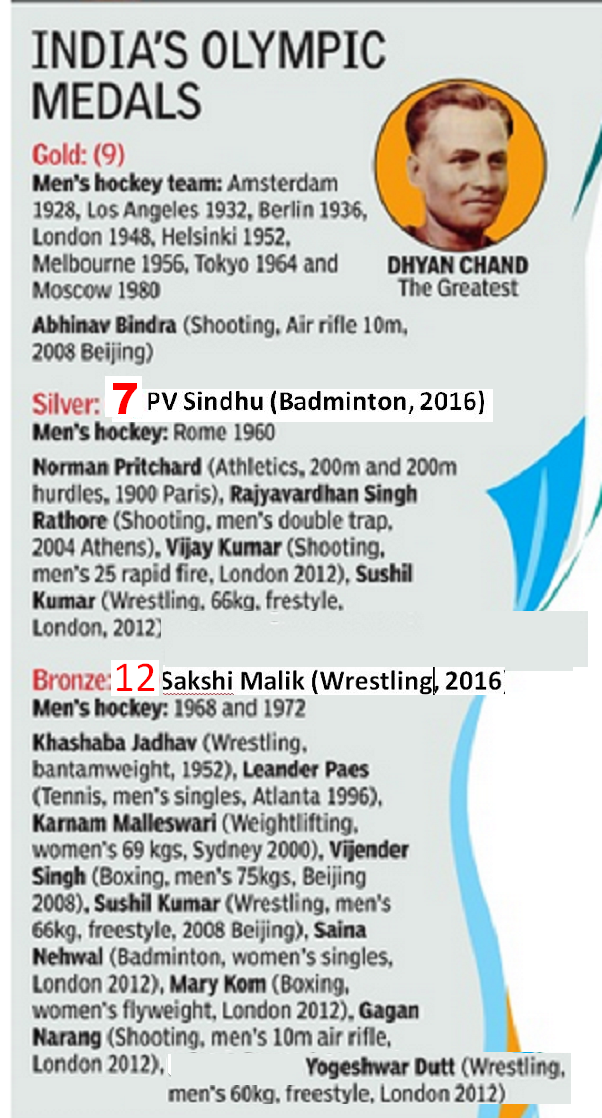
Graphic: ‘‘The Times of India’’
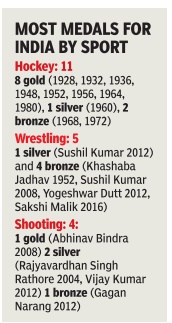
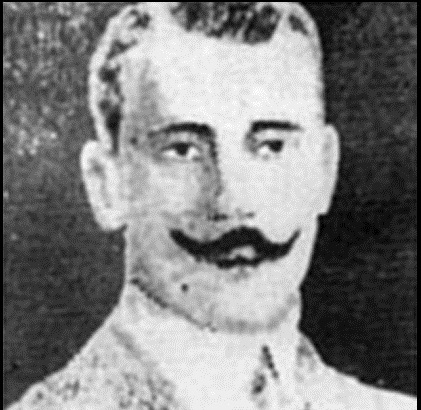
Silver
This is a collection of articles archived for the excellence of their content. Readers will be able to edit existing articles and post new articles directly |
1900-2016: the solo medallists
Fifteen solo medallists, 17 medals
Norman Pritchard and Sushil Kumar won two medals each.
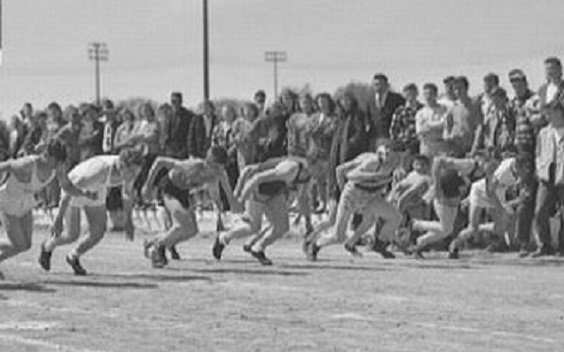
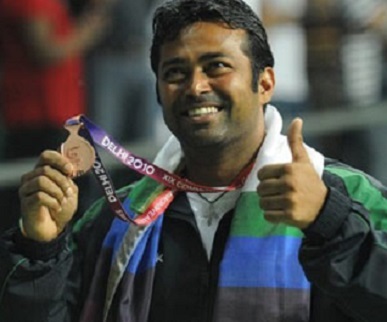
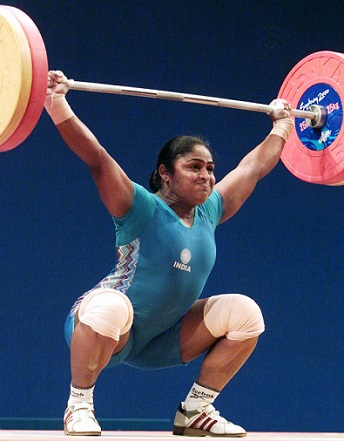
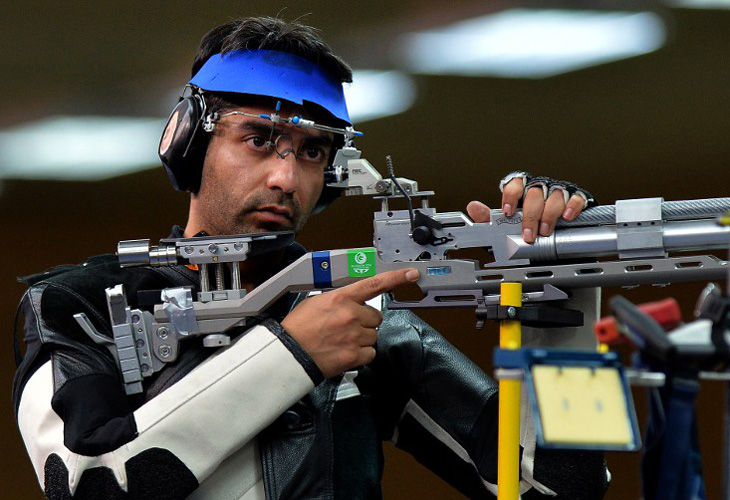
Gold.
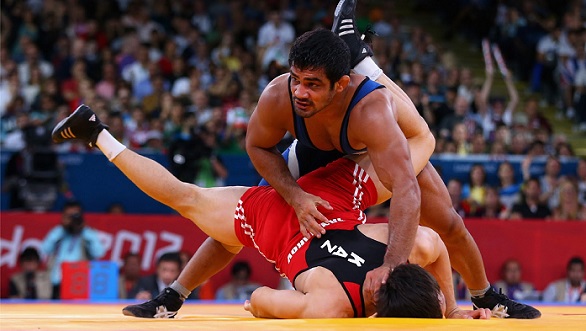
Silver and bronze.
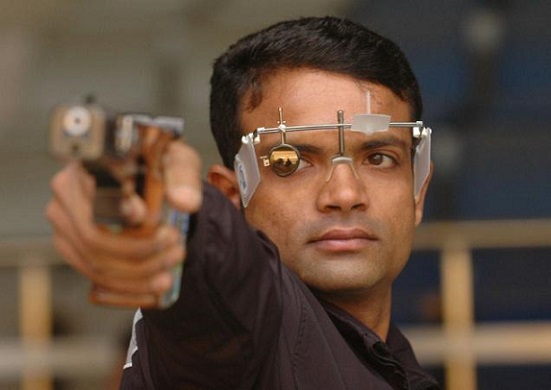
Silver
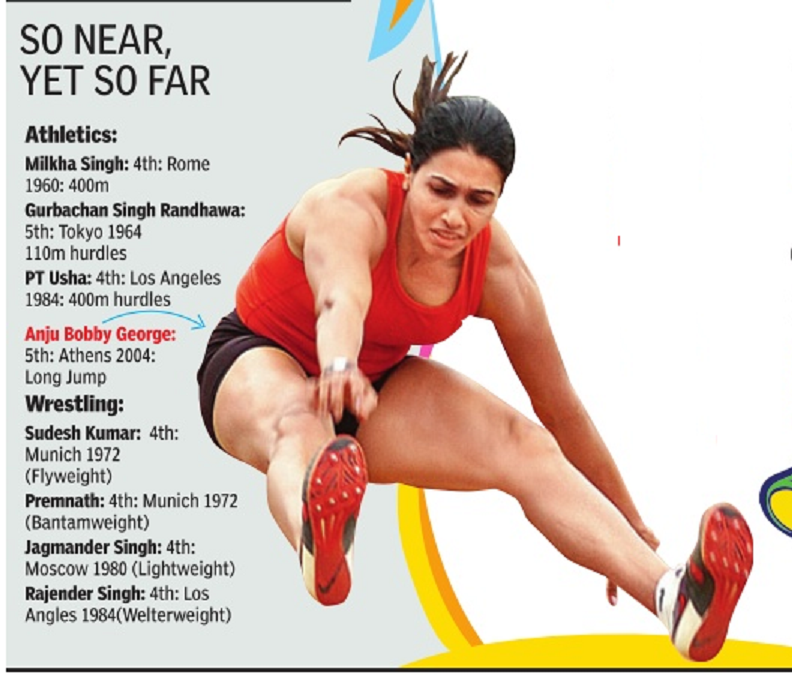
Graphic: ‘‘The Times of India’’
SPECTACULAR SOLOS
Prasanth Menon The Times of India Aug 01 2016
Individual Glory At The Olympics Has Come At A Premium For Indian Athletes.
Here, TOI Pays Tribute To 12 Medallists Who Defied The Odds to Climb The Podium
The names have been arranged in the chronological order. Within a year: gold first, silver next and bronze after that. Within a type of medal: in the alphabetical order of the second name.
NORMAN PRITCHARD, Silver—Athletics
Men's 200m (1900 Paris)
In the pre-independence era, Kolkata-born Norman Pritchard, competed in five races -60m, 100m, 110m hurdles, 200m and 200m hurdles -and reached the finals in 110m hurdles, 200m and 200m hurdles.Prithchard won silver in both 200m and 200m hurdles.
NORMAN PRITCHARD, Silver—Athletics
Men's 200m hurdles (1900 Paris)
Khashaba Dadasaheb Jadhav
Bronze-Wrestling
(1952 HELSINKI)
Born in a wrestlers' family, Khashaba Dadasaheb Jadhav overcame official apathy and financial crisis to grapple his way to independent India's first Olympic medal at Helsinki in 1952.Jadhav went to Finland banking on the generous contributions made by people of his native village, Goleshwar in Maharashtra, and the money provided by barrister Balasaheb Khardeka, the principal of his college, who mortgaged his home to send his ward to the Olympics. Shifting to the bantamweight category (57kg) from flyweight, Jadhav floored his opponents in the first five rounds. But then he ran into Ishii Shobachi, a sumo wrestler-turned freestyle grappler from Japan, and he got the better of Jadhav after a gruelling 15-minute fight. Rushed into his next bout against Soviet Union's Rashid Mammadbeyov, an exhausted Jadhav was tamed by Mammadbeyov and the Maharashtrian had to be content with bronze, a medal worth its weight in gold in Indian sporting history.
Leander Paes
Bronze--Tennis (1996 ATLANTA)
India had to wait for 44 years after Jadhav's brush with history to see an exuberant Leander Paes win a historic bronze. Going to Atlanta, Paes was ranked 127 in the world. But he toppled higher-ranked players from the first round to the quarterfinals to set up a semifinal showdown with Andre Agassi. Paes came within two points of winning the first set against the third seeded American but couldn't pull it off and eventually succumbed 6-7, 3-6. But, unlike the Slams, all was not lost.Paes had the opportunity to play the bronze medal match against Fernando Meligeni of Brazil. He didn't let the opportunity slip as he came back from a set down to beat the Brazilian 3-6, 6-2, 6-4.
Karnam Malleswari
BRONZE-WEIGHTLIFTING WOMEN'S 69 KG (2000 SYDNEY)
Coming from a humble background, Karnam Malleswari became the first Indian woman to win an Olympic medal when she claimed the bronze in Sydney. A two-time world champion, Malleswari increased her weight to compete in the women's 69 kg category, a decision which was vindicated when she lifted 110kg in snatch and 130 in clean and jerk (240kg) to finish third behind China's Lin Weining and Hungary's Erzsebet Markus. But despite grabbing a piece of history, Malleswari was distraught after the final result as she felt an error in calculation on the part of her coaches had robbed her of a certain gold medal. Lin had lifted 132.5 kg in clean and jerk in her last attempt and all Malleswari had to do was to match that effort to lift India's first gold medal. But Malleswari instead went for the jugular and attempted 137.5 kg, which she failed, and had to be content with a bronze.
Rajyavardhan Singh Rathore
SILVER—SHOOTING MEN'S DOUBLE TRAP (2004 ATHENS)
A soldier, who has been involved in combat operations against terrorists, Rajyavardhan Singh Rathore's experience of handling guns prompted him to turn to shooting in 1998. And it took the army marksman only six years in the sport to claim India's first-ever Olympic individual silver medal. On a windy day in Athens, Rathore didn't have the best of starts in the men's double trap event and qualified for the final after finishing fifth from three rounds in the preliminary stage. In the final round, Rathore shot 44 out of 50 to clinch the silver behind Sheikh Ahmed Al-Maktoum of UAE who claimed gold.
GOLD SHOOTING
MEN'S 10M AIR RIFLE (2008 BEIJING)
Indians watching television in the morning hours of August 11, 2008, had goose bumps when they saw the national anthem being played out loud at the Olympic arena. On top of the podium stood a bemused bespectacled man gazing at the Indian tricolor. In his third Olympics, Abhinav Bindra had shot himself to the pinnacle of Indian sporting glory by gunning down an Olympic gold medal. Bindra had a staggered start in the men's 10m air rifle event and was fourth while qualifying for the final. But determined to bury the ghosts of Athens, the then 26-year-old shooter reserved his best for the final round.Bindra started with a 10.7 in the before following it up with shots of 10.3 and 10.4. He moved into the lead with a 10.6 in the seventh shot. But Heri Hakkinen of Finland caught up with him in the ninth shot and both the Indian and the Finnish shooter were tied at 689.7 going into the final shot.But Hakkinen cracked under pressure. He scored only 9.7 to settle for bronze behind China's Zhu Qinan. Bindra, though, proved he was made of sterner stuff. He hit a near perfect 10.8 in his last attempt to finish with an accumulated score of 700.5 to grab gold and send a billion Indians into ecstasy.
Sushil Kumar
BRONZE —WRESTLING (2008) BEIJING
Details below (under 2012)
Vijender Singh
BRONZE—BOXING MEN'S 75 KG (2008 BEIJING)
Nine days after Bindra's gold winning effort, a product of the Bhiwani Boxing Club in Haryana, Vijender Singh, brought more cheer to Indians by punching his way to a bronze. Having moved to the middleweight category by the time the Games had arrived, Vijender breezed past his opponents in the opening rounds to set up a date with Carlos Gongora of Ecuador in the quarterfinals. Vijender dominated the quarterfinal bout against the southpaw to emerge victorious 9-4. The victory assured him of a bronze medal as there was no playoff for third place in boxing. But his hopes of making the final were dashed by Cuban boxer Emilio Correa.
Sushil Kumar
SILVER—WRESTLING MEN'S 66KG FREESTYLE (2012 LONDON), BRONZE (2008) BEIJING
He may not be a part of the Rio-bound squad but Sushil Kumar has already etched his name in Indian sporting history. He is the only sportsman from the country to have won back to-back Olympic medals.
The stockily built lad from Baprola village, however, had a disappointing start in Beijing. He lost his opening bout to Andriy Stadnik. But the Ukranian stormed into the final which gave Sushil the opportunity to contest the repechage where he bounced back beating world number five Doug Schwab and Albert Batyrov in the first two rounds. In the bronze medal match, Sushil took on Leonid Spiridonov of Kazakhstan and the Indian wrestler overcame his far superior opponent in the extra 30-second period to clinch a bronze medal. But Sushil wasn't done yet. He returned to the Olympic mat four years later and went one better. Entering London as the reigning world champion in the 66kg freestyle category, Sushil began his quest for a second Olympic medal with a victory over reigning Olympic gold medallist Ramazan Sahin of Turkey. He got the better of Ikhtiyor Navruzov in the quarters before overpowering Akzhurek Tanatarov in the semifinals. But in the semifinal, he sustained a cut to his upper lip and wasn't at his best against Tatsuhiro Yonemitsu of Japan in the gold medal clash which saw him having to settle for silver.
Rewards
REWARDS: Rs 2 crore (Delhi govt), Rs 1.5 cr (Haryana govt), Rs 75 lakh (Railways), 3kg gold (Sahara), Rs 30 lakh (sports ministry). Land from Haryana govt for academy.
Vijay Kumar
SILVER—SHOOTING MEN'S 25M RAPID FIRE PISTOL (2012 LONDON)
Coming from the mountains in Himachal Pradesh, the subedar in the Indian army made up for his poor performance in 10m air pistol by winning a silver in the 25m rapid fire pistol event. Kumar overcame the likes of world champion Alexei Klimov of Russia and the Chinese duo of Ding Feng and Zhang Jian to finish behind gold medal winner Leuris Pupo of Cuba. He found the target 30 times out of 40 attempts in the eight-round series in which each shooter had five shots. Kumar got off to a perfect start hitting five out of five in the opening series. But he couldn't match that effort thereafter. However, he kept himself in the gold medal hunt going into the last series. But Pupo hit four on target in the final round while Kumar missed three targets and consequently became India's second silver medalist in shooting.
Rewards
The Army shooter competed in London without any expectations of a medal and returned home after bagging the silver in an exciting duel against Leuris Pupo of Cuba and Ding Feng of China, who settled for the bronze. Vijay's Olympic glory got him on par with Athens silver medallist Rajyavardhan Singh Rathore, with the Army promising to explore ways to make him a commissioned officer. The subsequent financial rewards ran into crores.
REWARDS: Rs 1 crore (HP govt), 3 kg gold (Sahara), 50 lakh (Rajasthan govt), Rs 30 lakh (sports ministry), 30 lakh (defence ministry), Rs 20 Lakh (NRAI).
Yogeshwar Dutt
SILVER—WRESTLING MEN'S 60 KG FREESTYLE (2012 LONDON)
The wrestler from Sonepat, Haryana made amends for his quarterfinal loss in Beijing by grabbing a bronze in the men's 60 kg freestyle competition in the English capital. However, he didn't start well in London as he lost the pre-quarterfinal bout to B Kudukhov. But like Sushil in Beijing, Yogeshwar pounced on the chance of contesting in the repechage rounds. He beat Franklin Gomez in the first repechage round followed by victory over Masoud Esmaeilpour in the next encounter which set up a bronze medal bout against North Korean Jong Myong Ri.Though the fancied North Korean won the first round 1-0, Yogeshwar came back strongly in the next to take the bout to a third and final round. With a pinpoint head and roll, he floored his opponent in 1.2 seconds to clinch the bronze medal. Rio now offers Yogeshwar a chance to join Sushil in becoming the second Indian wrestler to grab two Olympic medals.
The real surprise of the Games, Dutt repeated Sushil’s feat by grabbing bronze after climbing his way up through repechage. A year later the new hero of wrestling is nursing an injury that forced him out of the world championships.
Yogeshwar Dutt's bronze medal from the 2012 London Olympics was upgraded to silver in Aug 2016 after the Russian wrestler who had come in second was stripped of his medal for failing a dope test.
Rewards
REWARDS: Rs 1 crore and land (Haryana), Rs 50 lakh (Rajasthan), 2kg gold (Sahara), SUV (from PSU Bank), 20 lakh (sports min).
Mary Kom
BRONZE—BOXING WOMEN'S FLYWEIGHT (2012 LONDON)
See also Mary Kom, the film
Women's boxing made its debut in the London games and MC Mary Kom was India's lone woman representative in the ring. The five time world boxing champion ensured a medal from London by grabbing a bronze in the women's flyweight category.Switching over to the 51kg category to enable her to compete in London, Mary Kom polished off Karolina Michalczuk of Poland 19-14 in her opening bout. A day later she brushed aside the challenge from Maroua Rahali of Tunisia to seal her spot in the semifinal, also assuring India of a bronze medal.However, Mary's endeavour to turn bronze into something bigger was doused by her nemesis Nicola Adams, as the Brit proved too good with a 11-6 win in the semifinal bout.
With women's boxing making its debut, London was the first opportunity for the multiple world champ to enter the Olympic ring. The Manipur girl had to endure anxious moments before she got a wild card for London. ‘Magnificent Mary’ didn't disappoint, claiming bronze. Mary and her husband Onler have toured the whole of country many times since, being guests of honour at functions. Mary, a mother of three, is now awaiting the release of her Bollywood biopic.
Rewards
REWARDS: Rs 50 lakh and two acres of land (Manipur), Rs 50 lakh (Rajasthan), 2kg gold (Sahara), Rs 40 lakh (north eastern council), Rs 20 lakh (Assam), 20 lakh (sports min).
Gagan Narang
BRONZE—SHOOTING MEN'S 10M AIR RIFLE (2012 LONDON)
Gagan Narang became the toast of the country after winning eight gold medals across the 2006 and 2010 Commonwealth Games in Melbourne and Delhi respectively. With Bindra failing to follow up on his Beijing success, the onus was on Gagan to deliver. And he gave India's its first medal in London by securing a bronze in men's 10m air rifle event. He finished with a total score of 701.1 behind Niccolo Campriani of Italy (701.5) and gold medal winner Alin George Moldoveanu of Romania (702.1). Though he had qualified for the men's 50m rifle three position event too in London, Gagan couldn't make it to
The Hyderabad-based shooter won India's second consecutive medal in the event after defending champion Abhinav Bindra crashed out in the first round. It was a brilliant show from Narang as he battled back from the crushing disappointment of missing out in 2008. The ace shooter is now in great demand for motivational lectures across boardrooms
Rewards
REWARDS: Rs 1 cr (Haryana govt), 50 lakh (Rajasthan govt), 2kg gold (Sahara), 20 lakh (sports min), 15 lakh (NRAI)
Saina Nehwal
BRONZE-BADMINTON WOMEN'S SINGLES (2012 LONDON)
Luck played a part in Saina's maiden Olympic medal as her opponent in the bronze medal playoff, Xin Wang from China, pulled out midway through the match due to a knee injury. But Saina certainly deserved that stroke of luck as she had been the flagbearer of Indian women's badminton for a good few years. A total of five Indian shuttlers managed to qualify for London 2012 but barring Saina, none progressed beyond the last-eight stage. The Hyderabadi shuttler steamrolled her opponents in the group phase and marched into the semifinals. But she failed to rise to the expectations and went down to China's Wang Yihan 13-21, 13-21. Though she became the first Indian shuttler to win a bronze medal in London, a more-experienced Saina would be hoping to add a golden feather to her cap in Rio.
Gagan Narang and Sania Mirza's city mate Saina went into the Games as among the strong medal contenders. She lived up to her billing, delivering a medal, though it came with a bit of luck as rival Wang Xin retired hurt in the bronze medal match. A year later, the high-flying Indian rose to No. 2 in world rankings.
Rewards
REWARDS: Rs 1 cr (Haryana), Rs 50 lakh (Rajasthan), 2kg gold (Sahara), Rs 25 lakh (BAI), 20 lakh (sports min), honorary doctorate from Mangalayatan University.
Sakshi Malik
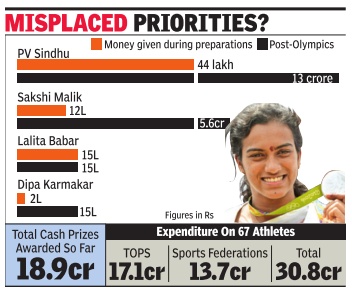
The Times of India’s point is that India is stingy during training, but splurges after medals have been won.
At the Rio Olympics in 2016, Sakshi Malik became the first female wrestler from India to claim an Olympic medal, a bronze in women's 58kg freestyle wrestling. She also became the fourth female medallist at the Summer Games for India after weightlifter Karnam Malleshwari (2000), boxer MC Mary Kom (2012) and shuttler Saina Nehwal (2012).
REWARDS: See graphic on this page.
PV Sindhu
2016: PV Sindhu became the first shuttler from India to make it to the final of the badminton singles event,the first female sportsperson to reach the top 2 in any sport at the Olympics, the first Indian woman to win a silver medal, and the fifth Indian to win a silver medal
REWARDS:
Telangana government: Rs.5 crore
Andhra Pradesh government: Rs.3 crore
Delhi government: Rs.2 crore
BPCL: Rs.75 lakh
Madhya Pradesh government: Rs.50 lakh
BAI: Rs.50 lakh
AIFF: Rs.5 lakh
Total, including other, smaller prizes, more than Rs.12 crore, and counting...
The Central Reserve Police Force (CRPF), the country's largest paramilitary force, made PV Sindhu its `brand ambassador' and also give her the honorary rank of commandant in the force, equivalent to the position of a superintendent of police (SP) and such an officer commands a battalion of about 1,000 personnel, when posted in field operations. (The Times of India)
Sindhu then signed a three-year deal with sports management company Baseline that could be worth up to Rs 50 crore, the highest ever for any non-cricket player. (The Times of India)
Narrowly missing a medal
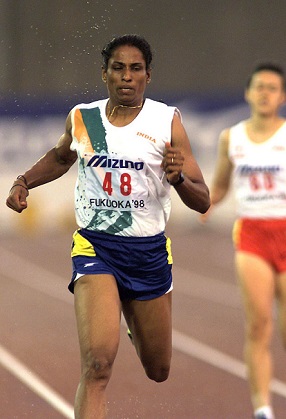
Photo: STF, YOSHIKATSU TSUNO
The Times of India Maxin Mathew
(See also Athletics: India)
PT Usha
(400M WOMEN'S HURDLES FINAL | 1984 LOS ANGELES)
The women's 400m hurdles was making its Olympic debut and given the form that PT Usha was in, India was confident of its first athletics medal at the Games. The feisty Kerala athlete had defeated American star Judi Brown in the semifinals, becoming the first Indian woman to reach the final of an Olympic event.In the final at the Los Angeles Memorial Coliseum, Usha began perfectly but the race was halted after a false start by Australian Debbie Flintoff-King. The restart, however, affected Usha's concentration and the 20-year-old got off her blocks slower than earlier.Trailing initially, Usha picked up pace and by the eighth hurdle, was back in contention for a podium finish. However, two hurdles later, Brown overtook her to seal the silver and with Usha failing to bend her body at the finish line, Romania's Cristina Cojocaru Romania's Cristina Cojocaru beat her to the bronze medal by 1100th of a second. Such was the dramatic photo-finish, that even the announcer handed the third place to Usha briefly, before correcting the decision in Cojocaru's favour.
Milkha Singh
(400m men's final | 1960 Rome)
Milkha Singh was in the form of his life in the run-up to the Games, having won 77 of the 80 races he had run.Competing in the 200m event would have guaranteed a medal for the gutsy sprinter but `The Flying Sikh' opted to race in his favourite 400m instead.Having done impressively in the heats, Milkha shot off the blocks in the final, maintaining a steady second position.But in the final 200m stretch at Rome's Olympic Stadium, he surprisingly slowed down, altering his pace to enable his competitors to overtake him.Milkha finished fourth with a timing of 45.6 seconds, a national record that stood for 38 years.
Indian Men's Hockey
(2000 Sydney)
See also Hockey: India
Having finished a disappointing eighth at the 1996 Atlanta Games, India were determined for a better show at Sydney. Under the leadership of Ramandeep Singh, the Indian squad featuring Dhanraj Pillay, Mukesh Kumar, Baljeet Singh Saini and Mohammad Riaz had the country's finest players primed to restore hockey's lost glory.India defeated Argentina and Spain, held the Aussies to a 2-2 draw before suffering a shock defeat to Korea. Needing just a win against minnows Poland to advance to the semifinals and guarantee themselves a medal, India took the lead through Dilip Tirkey and chose to adopt a defensive approach instead of going for the kill.The strategy backfired in the final minute of the match when Poland found the equalizer and the sight of Pillay leaving the field in tears remains a poignant memory. India finished tied with Korea but the latter advanced based on a better headto-head record. In the classification round, India lost to Great Britain before defeating Argentina to finish seventh out of the 12 teams.
Women's Hockey
(1980 Moscow)
Women's hockey was introduced in Moscow at an Olympics marred with massive boycotts over Russia's invasion in Afghanistan. The Indian women, lacking match practice and proper preparation, began well with wins over Poland and Austria. But a loss to Czechoslovakia and a draw against eventual champions Zimbabwe hit their campaign hard.Needing a draw against Soviet Union to seal at least the bronze in their name, nerves got the better of the Indian team and they lost 1-3 to finish fourth.
See also Women's hockey: India
Paes, Bhupathi
Leander Paes & Mahesh Bhupathi (Men's doubles tennis | 2004 Athens)
Two years before the Athens extravaganza, Paes and Bhupathi split for the second time in three years. After a lot of clamour from fans and former players, the duo decided to reunite a month before the Games. Many doubted the pair's capability, but Paes and Bhupathi silenced them all by winning the Canada Masters on their comeback, just weeks before the Games. Seeded fifth in Athens, the `Indian Express' looked set for a medal after defeating heavyweight pairings such as Mardy Fish-Andy Roddick and Yves Allegro-Roger Federer en route to the semis. But in the last-four clash, the favourites, who had not dropped a set till then, suffered a straight sets defeat to Germans Nicholas Kiefer and Rainer Schuttler. The bronze medal showdown against Croatians Mario Ancic and Ivan Ljubicic too went against Paes and Bhupathi, the Indian pair suffering a 6-7, 6-4, 14-16 defeat in a four-hour marathon encounter.
Henry Rebello
(Triple jump, 1948 London)
Henry booked his ticket to London with a national record jump of 50ft, 2in at the 1948 All-India meet in Lucknow, making him a sureshot contender for an Olympic medal. However, the young 19-year-old Bengalurean ruptured his right hamstring muscle in his first jump at the Games and was stretchered off, his Olympic dreams dashed.
Satyadev Prasad
(Archery | 2004 Athens)
Prasad gave India a glimmer of hope when he battled windy conditions to become the first archer to enter the prequarters. Defeating higher-ranked Japan's Yuji Hamano and Dutchman Ron van der Hoff, Prasad was up against top seed and world record holder South Korean Im Dong-Hyun. The UP lad faltered in the final round, losing the match by an agonizing two points.
Wrestling
KD Mangave (1952, Helsinki) had to settle for fourth in the freestyle featherweight category after losing to American Josiah Henson in the fifth round. Twenty-four years later, freestyle wrestlers Sudesh Kumar (52kg) and Prem Nath (57 kg) finished fourth at the Munich Games.
See also Wrestling: India
Boxing
Gurcharan Singh was on the cusp of winning India a medal at the Sydney Olympics, leading by a point in the quarterfinals of his heavyweight bout against Ukrainian Andriy Fedchuk. However, he failed to evade a punch from Fedchuk in the dying seconds to end the bout tied 12-12. The judges ruled the bout 60-42 (number of punches landed) in favour of the Ukrainian, leaving Gurcharan distraught in the ring.
See also Boxing: India
Shooting
Finishing seventh in the qualification round of the men's 50m rifle prone event, Joydeep Karmakar had his eyes set on a medal during the 2012 London Games. He came agonizingly close before losing out on the bronze by 1.9 points to finish fourth.
See also Shooting: India
Medals won: By population and GDP
The Times of India, Mar 02 2016
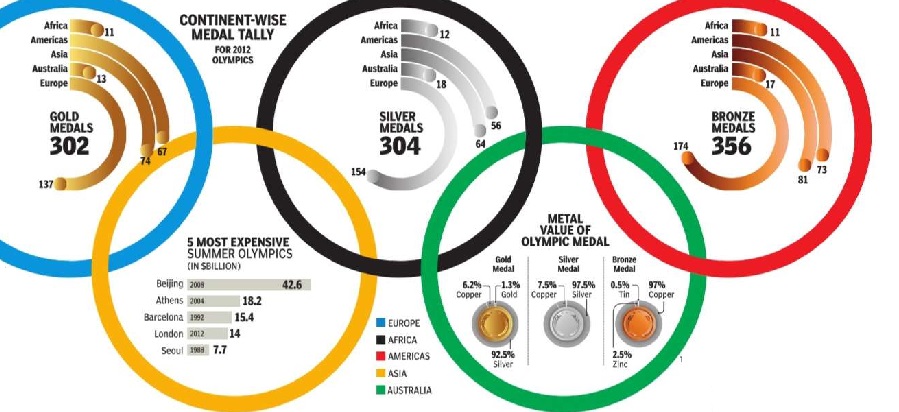
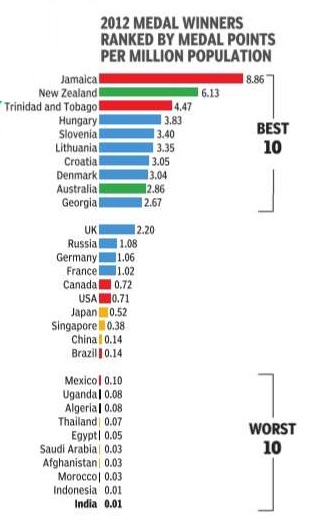
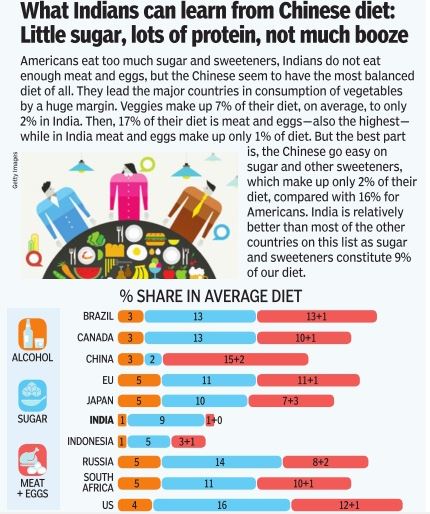
The Times of India
The country's 1.2 billion-plus population should be an advantage. It's $2 trillion economy should put it among the lords of the rings. Yet, we bring up the rear at the Games every four years. Why? Our sports budget converts into Rs 8 per Indian! India's status as a perpetual under performer in Olympic sports is an issue that has led to much hand wringing over the years, and with good reason. One could argue that a country of 1.2 billion people should be throwing up lots of talented sportspersons and hence be a serious contender for global honours.The truth is that seen in terms of the number of medals won for every million people, India was the worst among all the nations at the London Olympics of 2012. While the two silver and four bronze medals won that year represented the country's best ever showing at the Games, it still amounted to less than 0.01 medals for every million people, barely better than the many nations that won nothing.
If you are among those who believe it is not sheer population size but economic might that counts, you would still be hard put to account for India's performance or lack of it. Once again, with 4.4 medal points (a gold equals three points, a silver two and a bronze one) per trillion dollars of gross domestic product, India was one of the four worst performers among those that won at least one medal.Of course, that's better than the many who won nothing, but again only just.
We looked also at how today's top medal winners had performed when their economy was of roughly the same size as India's now is, that is about $2 trillion. There are nine other countries whose GDP has crossed this mark at some point or the other. We looked at how they fared in the Olympic Games closest to the year in which they achieved their GDP milestone. As the chart shows, every one of them performed much better than India did in 2012.
The inescapable conclusion is that as a thumb rule, for an Indian sportsperson to do well he or she must excel inspite of the system. Cricket is perhaps the best illustration of the point, with the state having no role in running the sport. But even outside of cricket, the examples of Vishwanathan Anand, Leander Paes, Mahesh Bhupati and Sania Mirza or of Saina Nehwal, Pankaj Advani and Anirban Lahiri prove the point. These are some of India's most accom plished sports stars and they have come up through their own hard work and the sup port of sponsors they have been able to manage, not through state support.
With governments spending little on cre ating sporting infra structure and facili ties for mass partici pation in sports across the length and breadth of this vast country, it is not a situation that is likely to change very much very soon.
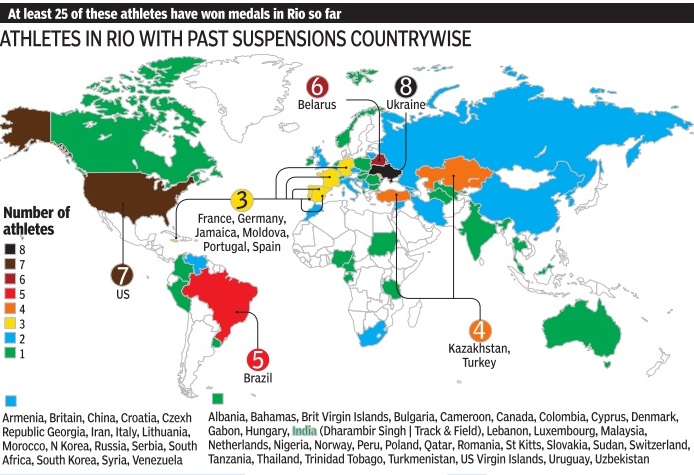
Antwerp Games, 1920: Funding
Sources:
1. From the archives of The Times of India: 2008: Ronojoy Sen
2. Book: The India Story by Boria Majumdar and Nalin Mehta
Tata’s Olympic safari
There is hardly anyone who hasn’t heard of Jamshedji Tata. But few remember his elder son Dorab. To this Tata goes the credit of starting the Olympic movement in India. Dorab Tata was mostly educated in England and his interest in sport was a result of his Western upbringing.
In the 1880s and ’90s, Dorab Tata was active in organising school and college cricket in Bombay. He then became involved with the Deccan Gymkhana where he was nominated president. The committee, which ran the Gymkhana, was not conversant with the details of managing athletic meets on European lines and wanted to develop their sports programme more in line with established Indian traditions.
At the first athletic meet the Gymkhana organised, Dorab Tata discovered that the competitors were “all boys of the peasant class working in the fields and living off poor fare”. Naturally they had no idea of European rules or modern training of any kind. Dorab Tata found that the competitors were proposing to run their 100-yard heats round a bend without strings. This was because their sports ground was very small and the track was part of a rough unrolled grass field.
O t h e r p o p u l a r events included the long distance race of about 25 miles. The peasants who participated were used to running barefoot on hard macadamised or dirt roads. Despite their lack of training and primitive conditions, the first three or four men ran the distance in good time. Dorab Tata felt that their time compared well with those in Europe or elsewhere. In 1919, some of their times were close to the times clocked in the Olympics.
Suitably impressed, the Tata scion decided to send three of the runners, at his own expense, to the Antwerp Games of 1920. Later he wrote a letter to IOC president Count Baillet Latour explaining his motives: “I therefore offered to arrange for the sending of three of the best runners to Antwerp to run the Olympic marathon at the next meeting, when I hoped that with proper training and food under English trainers and coaches they might do credit to India.”
Ultimately six or seven athletes from India proceeded to Antwerp with Dorab Tata bearing a bulk of the cost, which was estimated to be Rs 35,000. Dorab, however, only visited Antwerp briefly. Suffering from poor health, he could not find time to see the Games or meet the Indian contingent.
Thus began India’s eventful Olympic journey.
Olympic medallists, 2012, 2016: Rewards

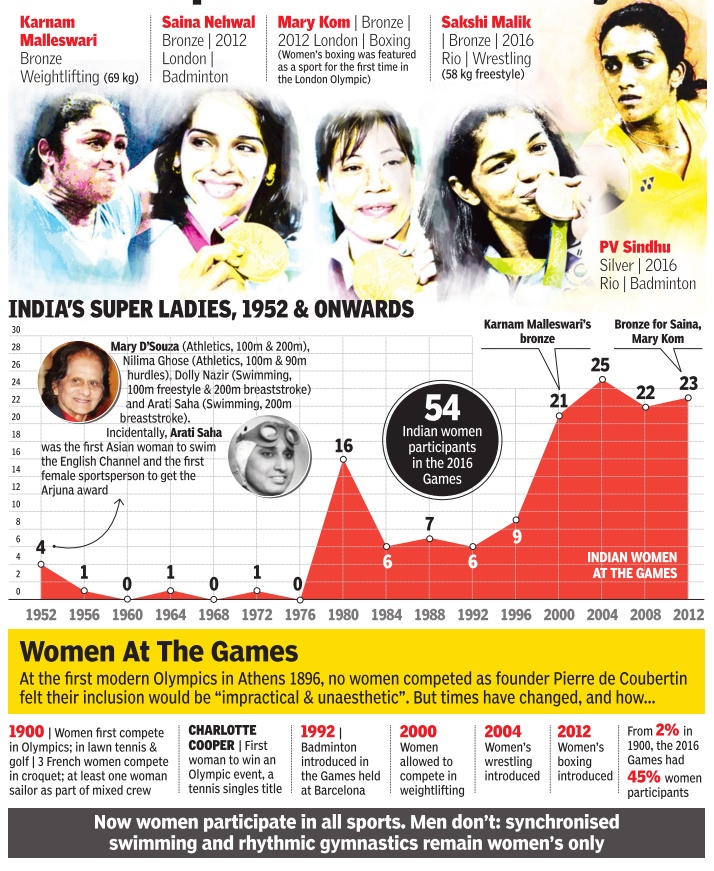
(See also the individual entries above)
'Rewards from the private sector
INDIA’S LONDON CHAMPS: ONE YEAR LATER
THE DIMINISHING BRAND
Lukewarm Response From India Inc
Olympic Medallists Rue Lukewarm Response From India In c Biju Babu Cyriac | TNN
The Times of India 2013/08/07
While the Olympic medallists have got decent monetary rewards, mostly from the government sector, many endorsement offers were supposed to come their way as top corporates showed interest. But a year later, they did not materialize, and at least the Andhra Pradesh government is yet to hand over promised land and awards of Rs 50 lakh each to Narang and Saina Nehwal.
For some, a job promotion hasn’t happened while some await promised financial rewards. The euphoria following India’s improved performance in London — where the country won two silver medals and four bronze — may have lasted for months but it wasn’t enough to convince corporate to make a move away from the cricketers.
Although several offers were made, most of them fell through at the negotiation stage. “Even in the case of Saina Nehwal, most of her endorsement offers came before the Olympics. She hasn't got any big deals for winning the bronze medal in London. Maybe Mary Kom, bronze winner in women’s boxing, has got one or two offers but in all these cases the figures quoted may not be true. Even if they have signed for free, they will quote a high figure to float the brand,” sources told TOI.
Dismayed at the turn of events, athletes are now wondering whether India's corporates will ever come around to promoting Olympic sports.
IOA goes back on promise
The Indian Olympic Association (IOA) has gone back on its promise that money raised through sponsors for the London Games would go only to athletes. The association has now decided that all the officials who travelled to London too deserve princely sums!
“The IOA raised a total of Rs 3.25 crores from five companies in sponsorship money and then-president VK Malhotra had promised that all the money will go only to the 83 athletes (approx 3.92 lakh each) who represented India. But they have not done that as IOA officials decided to grant an allowance of Rs 50,000 to coaches and support staff. This meant athletes who toiled got much less than promised,” sources said.
2016, Rio: Results beyond the two medals…
…Or The true significance of India’s performance
NALIN MEHTA, Aug 21 2016 : The Times of India-IT'S ALL POLITICS - No rona about Rio. India's done better than you think
First, Indian sport has significantly increased its width in Rio, with several Indian athletes for the first time appearing among the top 10-20 in disciplines we have not had a presence in for decades. Dipa Karmakar's awe-inspiring Produnova and her fourth place in the vault event, and Lalita Babar's creditable 10th finish in the steeplechase can only be appreciated if we remember that no Indian woman has reached the finals of an Olympics athletics event since P T Usha in 1984 -and that was in a field curtailed by the Soviet boycott.
This has happened despite no visible increase in sporting facilities. Karmakar's physio was not allowed to accompany her to Rio and flown in only when she qualified for the finals, athlete Dutee Chand flew the 36 hours to Rio economy class while sports officials flew business class, and rower Dattu Bhokalan from drought-hit Talegaon who reached the quarter-finals in sculls says he'd “never seen so much water“ in his life till he joined the Army in 2012.
As sports writer Deepak Narayan points out, in Beijing in 2008 three Indian athletes reached the medal rounds and all three won medals.
In London, 11 made it to medal rounds and six won medals.
In Rio, though only seven reached a medal round (not counting men's wrestling), three fell just short of bronze -Abhinav Bindra, Dipa Karmakar, and Sania Mirza with Rohan Bopanna.
Third, Olympic medals are a consequence not of population but access to facilities. Sports minister Vijay Goel told the Rajya Sabha on July 26, 2016 that his ministry spent Rs 49.2 crore ($7.3 million) on India's Rio athletes (including Rs 25 crore under Target Olympics Podium (TOP) scheme), apart from another 49.2 million ($7.1 million) spent on 67 sports federations since 2012.
This is nothing compared to the £350 million spent for Rio 2016 by the UK which has gone from an Olympics also-ran to No. 2 position, $340 million by Australia or $139 million by Canada.
For 118 athletes to qualify for Rio in so many new disciplines and to make inroads despite a terrible system is evidence that something new is happening in Indian sport.
Women pioneers
In 1952 independent India sent its first women's representatives to the Olympics in Nilima Ghosh (100m and 80m hurdles) and Mary D'Souza (100m and 200m); Dolly Nazir (100m freestyle and 200m breaststroke) and Arati Saha (200m breaststroke).
See also
The Olympics: India (1900-2016)
